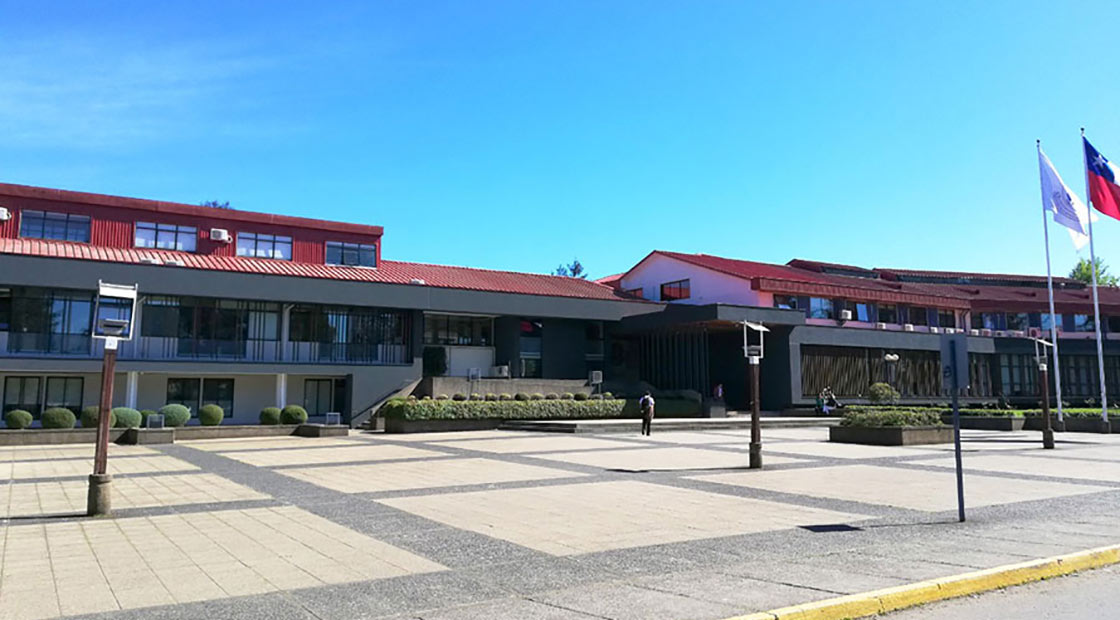The Universidad de La Frontera starts this year with 36 new FONDECYT (“Chilean National Fund for Scientific and Technological Development”) Projects (14 Regular, 10 Initiation in Research, and 12 Post-Doctoral Projects).
“This result confirms the great performance of our researchers in a system of increasingly competitive public competitions,” commented the Vice-Rector for Research and Graduate Studies of the Universidad de La Frontera (UFRO), Dr. Rodrigo Navia Diez, after receiving the good news.
“2021 is over and we start this new year with 36 awarded FONDECYT Projects and the commitment to keep encouraging our researchers in order to move forward and to align our work with the current needs and global issues,” he added.
The proposal selection process is very strict and includes an analysis of the quality, feasibility and degree of scientific and technological innovation of the project, as well as of the previous productivity of the researcher in charge of the project.
The Chilean National Agency for Research and Development (ANID) seeks to promote scientific and technological research in various fields of knowledge with its competitions, and by funding individual research projects of excellence, in order to create knowledge.
According to Dr. Carolina Navarrete, the Research Director at UFRO, this important achievement reflects the progress and leadership of the research of excellence produced at UFRO in the fields of science and technology. The awarded projects cover the fields Exact and Natural Sciences (especially mathematics, chemistry and theoretical and experimental physics); Technology and Engineering Sciences (especially engineering); Social Science (especially early childhood education, sociology and psychology); and Humanities (especially linguistics and transdisciplinary and interdisciplinary research).
“There is no doubt that these results are the product of a cooperative effort between the Vice-Rectorate for Research and Graduate Studies and the Research Office, which support the academics and researchers of UFRO who conduct cutting-edge research. In this regard, the incentive strategies and permanent support are showing results. But we are also aware that we have to strengthen the work of our researchers even more and that is why we are working hard to promote the research of UFRO through the introduction of new thematic competitions together with other universities in Chile as well as in the rest of the world. We are working on the process of reviewing our policies, because it is important to make progress in research based on the most up-to-date knowledge, having the transformations of our society in mind. It is essential to constantly improve the institutional support strategies for our researchers and we are strongly committed to that, since it is one of our challenges in 2022 and the future,” she added.
Jacqueline Acuña Sobarzo: “Development of intelligent cooperative microbial consortia based on in situ cultivation and their functional complementarity to improve lupine stress tolerance”.
Mónica Bravo Sanzana: “Evaluación de una medida multidimensional y multi-informante de Clima Social Escolar y bienestar hedónico y eudaimónico para estudiantes adolescentes en etapa de transición educativa” (Evaluation of a multidimensional and multi-informant measure of Social School Climate and hedonic and eudaimonic well-being for adolescent students in an educational transition stage).
Carlos del Valle Rojas: “El proyecto civilizatorio en la industria cultural de América Latina. Fundamentos ideológicos, encuadres mediáticos y estrategias de enemización durante los siglos XIX, XX y XXI. Los casos de Chile, Argentina, Perú y Colombia” (The civilising project in the Latin American culture industry. Ideological foundations, media frames and enemisation strategies during the 19th, 20th and 21st centuries. The cases of Chile, Argentina, Peru and Colombia).
Francisco Matus Baeza: “Ferrous wheel coupled to nitrate reduction as a mechanism for nitrogen retention in temperate rainforest soils”.
Carolina Merino Guzmán: “Biotic and abiotic oxidation mechanisms of organic matter in humid temperate forest soils in fluctuating redox microsites”.
Carlos Muñoz Poblete: “Towards reliable movement identification for dairy cattle based on self-calibration attitude estimate algorithms”.
Aldo Olate Vinet: “Fenómenos de cambio de valencia y orden sintáctico en el castellano hablado por bilingüés mapuche/español. Un abordaje desde el contacto lingüístico y la tipología sintáctica” (Valency change and syntactic order phenomena in Spanish spoken by Mapuche/Spanish bilinguals. An approach based on language contact and syntactic typology).
Cristián Paz Robles: “Hemisynthesis of Drimane Sesquiterpenoids isolated from Drimys Winteri as modulators of hα7 and hα4β2 nAChR subtypes: searching for specific ligands with neuroprotective activity” Saúl Quispe Mendoza: “Dessins d'enfants on surfaces of infinite type”.
Sebastián Reyes Carocca: “Group actions on Riemann surfaces and abelian varieties”.
Mauricio Santibáñez Villalobos: “Dosimetry characterization and optimization of the dose enhancement and dose sparing process produced with Gd-nanoparticles infused in tumor by treatments with electronic brachytherapy and Radiotherapy Flattening Filter Free”.
Cledir Santos: “Development of a biofungicide from pod extracts of Capsicum Annuum L. to prevent mycotoxigenic fungi in wheat production”.
Ítalo Trizano Hermosilla: “Fiabilidad de la medida para datos categóricos con estructuras latentes bifactor: Comparando el nivel de sesgo de diferentes estimadores obtenidos desde la teoría clásica de los test, sus extensiones factoriales y la Teoría de Respuesta a los Ítems” (Measurement reliability for categorical data with bifactor latent structures: Comparing the level of bias of different estimators obtained from classical test theory, its factorial extensions and Item Response Theory).
Héctor Young Conejeros: “Model-free predictive control of ac microgrids”.


